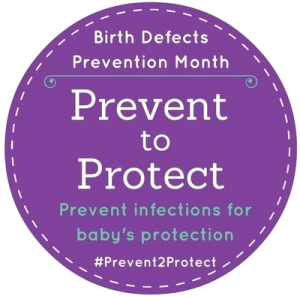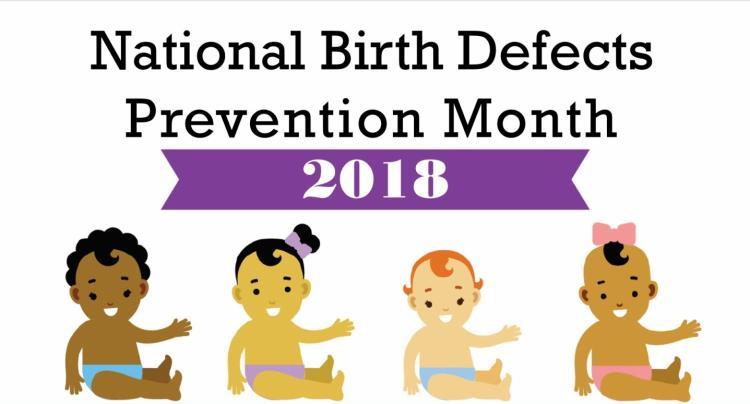January is National Birth Defects Prevention Month, and the theme for 2018 is “Prevent to Protect: Prevent Infections for Baby’s Protection.”
Click here to read the health department’s National Birth Defects Prevention Month 2018 press release.
Not all birth defects can be prevented, but some can – particularly those that are caused by infections women might get before or during pregnancy.
All women who might become pregnant – including teens – can lower their risk of having babies with birth defects by following some basic health guidelines throughout their reproductive years:

1. Stay vaccinated.
- Get the flu shot each year, as well as the whooping cough vaccine.
- Be up-to-date on all of your vaccines before becoming pregnant.
2. Prevent insect bites.
- Use insect repellent. (According to the EPA, the most effective insect repellents are those that contain picaridin, IR3535, DEET, or lemon-eucalyptus oil, AKA para-menthane-3,8-diol.)
- Wear long-sleeved shirts and long pants when outside.
- Consider avoiding travel to areas where the Zika virus is present.
3. Practice good hygiene.
- Wash your hands often with soap and water.
- Avoid putting a young child’s cup or pacifier in your mouth.
 4. Get enough folic acid.
4. Get enough folic acid.
- All women who are capable of bearing children should consume 400 micrgrams (400 mcg or 0.4
- mg) of folic acid daily. This can prevent 50 to 70 percent of neural tube defects, such as spina bifida and anencephaly.
5. Talk to your healthcare provider.
- Ask about how you can prevent sexually transmitted infections.
- Discuss prevention of Zika virus
Additional resources:
- Click here for the National Birth Defects Prevention Network website.
- Click here for the Kentucky Birth Surveillance Registry.
- Click here to read the Centers for Disease Control (CDC) recommendations for preventing birth defects.

